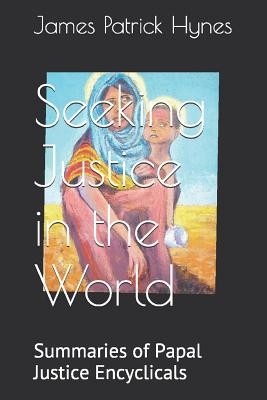
- We will send in 10–14 business days.
- Author: James Patrick Hynes
- Publisher: INDEPENDENTLY PUBLISHED
- Year: 2016
- Pages: 94
- ISBN-10: 1520138814
- ISBN-13: 9781520138817
- Format: 15.2 x 22.9 x 0.6 cm, minkšti viršeliai
- Language: English
- SAVE -10% with code: EXTRA
Reviews
Description
In his encyclical 'Deus Caritas Est' (God Is Love) published in 2005, Pope Benedict XVI wrote: "As Augustine once said, a State which is not governed according to justice would be just a bunch of thieves." Some fifteen hundred years after St. Augustine, in 1891, Pope Leo XIII published the first of a succession of social justice encyclicals and they became known as the 'Church's Best Kept Secret' because they were never widely acknowledged, read or acted upon within the universal Church. These documents were radical, secretive and neglected. Few clerics knew or cared much about them. Nevertheless their impact within the secular world was stronger from time to time. For example, after the publication of the encyclical Mater et Magistra (Christianity and Social Progress) by Pope John XXIII, 1961 opponents among the politically aware rejected it by crying out, "Mater, si! Magistra, no." (Mother, yes! Teacher, no!). Further evidence of the radical strength of the encyclicals followed the promulgation of Pope Paul VI's 'Populorum Progressio' in 1967. According to Dr. Rupert J. Ederer, an eminent American writing 'America and Catholic Social Teaching: An Urgent Warning' stated: "It is not surprising that a leading herald of neoliberalism, The Wall Street Journal, referred to the contents of Populorum Progressio, when it appeared, as 'warmed over Marxism.' " The Church's social doctrine is not a 'third way' between liberal capitalism and Marxist collectivism. It is in a category of its own, not an ideology but an accurate formulation of reflection on the complex realities of human existence as they conform to the Gospel in moral theology. As such they consistently put the person first ahead of socio economic and political systems. "Work, in the first place, is for the worker not the worker for work," 'Laborem Exercens' (On Human Work). These summaries of the original robust encyclicals, consistently and frequently controversially, place human beings, never capital and property, at the centre of things. They support: trades unions; the right to strike; the rights of workers to manage and share profits; the state protection of citizens; responsible private ownership; equitable distribution of wealth; rights for refugees. They condemn the excesses of both capitalism and socialism but approve aspects of each in moderation. Unrestricted competition is censured. Racism is condemned. War is denounced.
- Author: James Patrick Hynes
- Publisher: INDEPENDENTLY PUBLISHED
- Year: 2016
- Pages: 94
- ISBN-10: 1520138814
- ISBN-13: 9781520138817
- Format: 15.2 x 22.9 x 0.6 cm, minkšti viršeliai
- Language: English English
In his encyclical 'Deus Caritas Est' (God Is Love) published in 2005, Pope Benedict XVI wrote: "As Augustine once said, a State which is not governed according to justice would be just a bunch of thieves." Some fifteen hundred years after St. Augustine, in 1891, Pope Leo XIII published the first of a succession of social justice encyclicals and they became known as the 'Church's Best Kept Secret' because they were never widely acknowledged, read or acted upon within the universal Church. These documents were radical, secretive and neglected. Few clerics knew or cared much about them. Nevertheless their impact within the secular world was stronger from time to time. For example, after the publication of the encyclical Mater et Magistra (Christianity and Social Progress) by Pope John XXIII, 1961 opponents among the politically aware rejected it by crying out, "Mater, si! Magistra, no." (Mother, yes! Teacher, no!). Further evidence of the radical strength of the encyclicals followed the promulgation of Pope Paul VI's 'Populorum Progressio' in 1967. According to Dr. Rupert J. Ederer, an eminent American writing 'America and Catholic Social Teaching: An Urgent Warning' stated: "It is not surprising that a leading herald of neoliberalism, The Wall Street Journal, referred to the contents of Populorum Progressio, when it appeared, as 'warmed over Marxism.' " The Church's social doctrine is not a 'third way' between liberal capitalism and Marxist collectivism. It is in a category of its own, not an ideology but an accurate formulation of reflection on the complex realities of human existence as they conform to the Gospel in moral theology. As such they consistently put the person first ahead of socio economic and political systems. "Work, in the first place, is for the worker not the worker for work," 'Laborem Exercens' (On Human Work). These summaries of the original robust encyclicals, consistently and frequently controversially, place human beings, never capital and property, at the centre of things. They support: trades unions; the right to strike; the rights of workers to manage and share profits; the state protection of citizens; responsible private ownership; equitable distribution of wealth; rights for refugees. They condemn the excesses of both capitalism and socialism but approve aspects of each in moderation. Unrestricted competition is censured. Racism is condemned. War is denounced.


Reviews